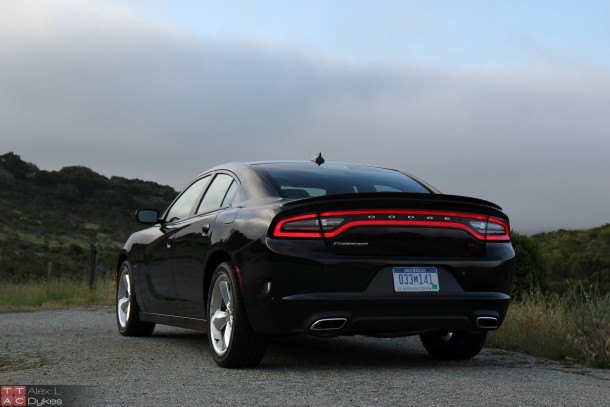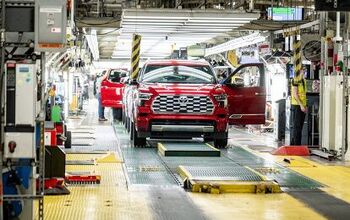FCA US Reducing Powertrain Warranty To 60K Miles For 2016 Models
Those shopping for a new Charger, 300, Wrangler or 1500 because of the powertrain warranty may need to pull the trigger soon due to an upcoming mileage cut.
According to the following statement, FCA US is cutting the warranty down from the current 5-year/100,000-mile guarantee to a new 5-year/60,000-mile term for the 2016 model year, Automotive News reports:
Following changes already made by competitors, FCA US is adjusting powertrain warranty coverage for 2016 model year vehicles to be more consistent with industry practices. For 2016MY, Chrysler, Jeep, Dodge and Ram Truck vehicles with gasoline engines will be covered by a 5-year/60,000 mile powertrain warranty.
An FCA representative says the company’s 3-year/36,000-mile bumper-to-bumper warranty will remain unchanged, while diesels, Alfas and Fiats are not affected by the policy change; Fiat has its own 4-year/50,000-mile powertrain warranty.
The move follows General Motors’ decision in March 2015 to cut-down its 5-year/100,000-mile powertrain warranty for its Chevrolet and GMC products to a 5-year/60,000-mile policy.
[Source: Alex L. Dykes/ The Truth About Cars]
Seattle-based writer, blogger, and photographer for many a publication. Born in Louisville. Raised in Kansas. Where I lay my head is home.
More by Cameron Aubernon


































Comments
Join the conversation
I always thought the 100k powertrain warranties were marketing gimmicks more than anything. On a modern vehicle, especially one I'm buying new, I generally expect what the manufacturer would call the "powertrain" to last 100k miles without significant problems. Things like power equipment, AC compressors, infotainment systems, vehicle control computers, etc, would seem far more likely to do five figure damage to the wallet within the first 100k miles than the powertrain. FCA has very reasonable extended warranties available. 4 members of my family (myself, my parents, and one of my moms sisters) have bought 2 Town & Countrys and 2 Fiat 500s between us over the past 3 years and we all ended up going all the way with a lifetime bumper to bumper unlimited mileage warranty (my Abarth cost $3200 and I think my parents paid similar for their 500C and T&C).
This must be a financial decision. There must be a significant number of costly warranty claims after the 60K mileage mark the company is hoping to stop paying for. It is that simple. Message ... do not buy the vehcles.
When I bought a new VW Golf in 2002, unbeknownst to me, the model year 2001 100K drive train warranty was cut to 60K. My normally driven auto transmission grenaded during a simple parking lot maneuver at 67K mi.. I interpret that something happened during manufacture, and rather than fixing it, they did an engineering and accounting calculation that rationalized reducing the warranty. Buyers beware.
So, what about rental cars that come up for sale? I just browsed at Hertz, and they claimed that many of their cars for sale were "still under factory warranty", which (for cars with >36k) would mean the factory powertrain warranty. I speculate that brands that have a large rental-fleet footprint are at a greater risk of claims against the powertrain warranty.